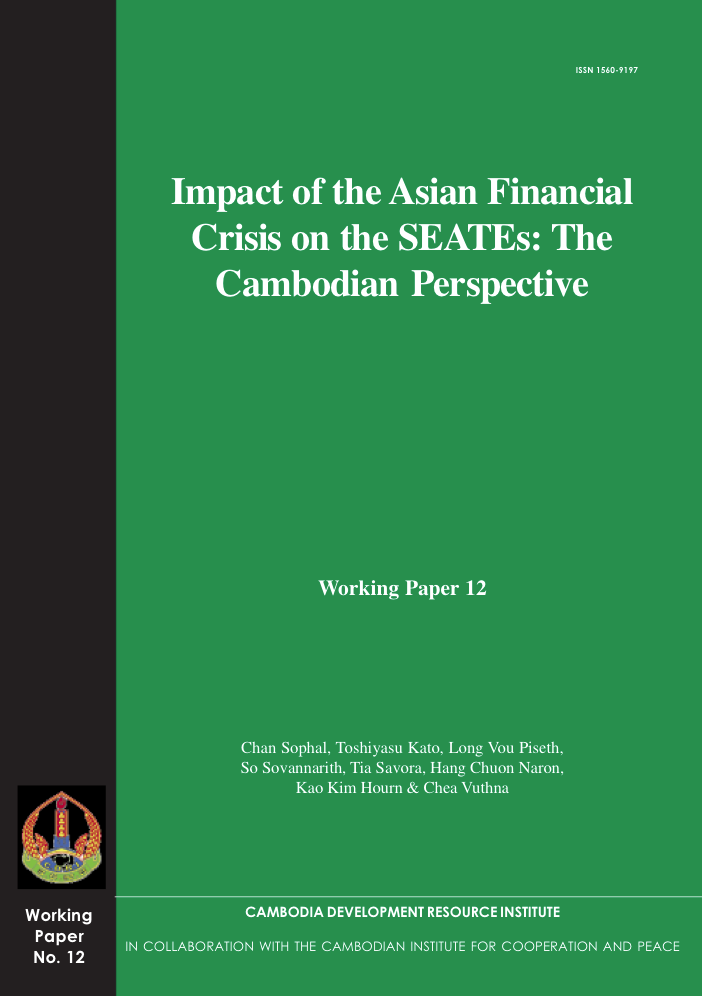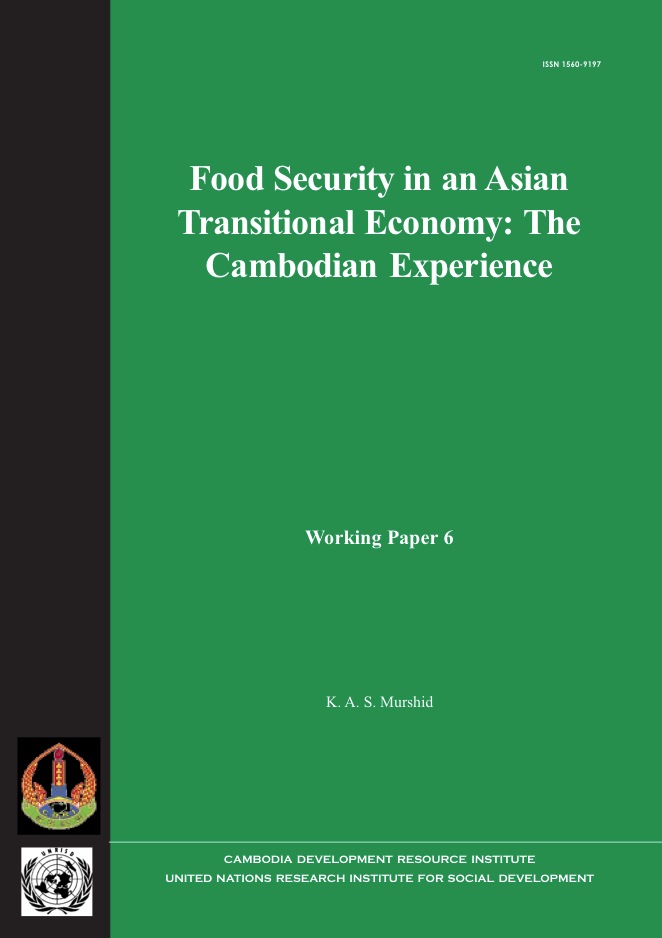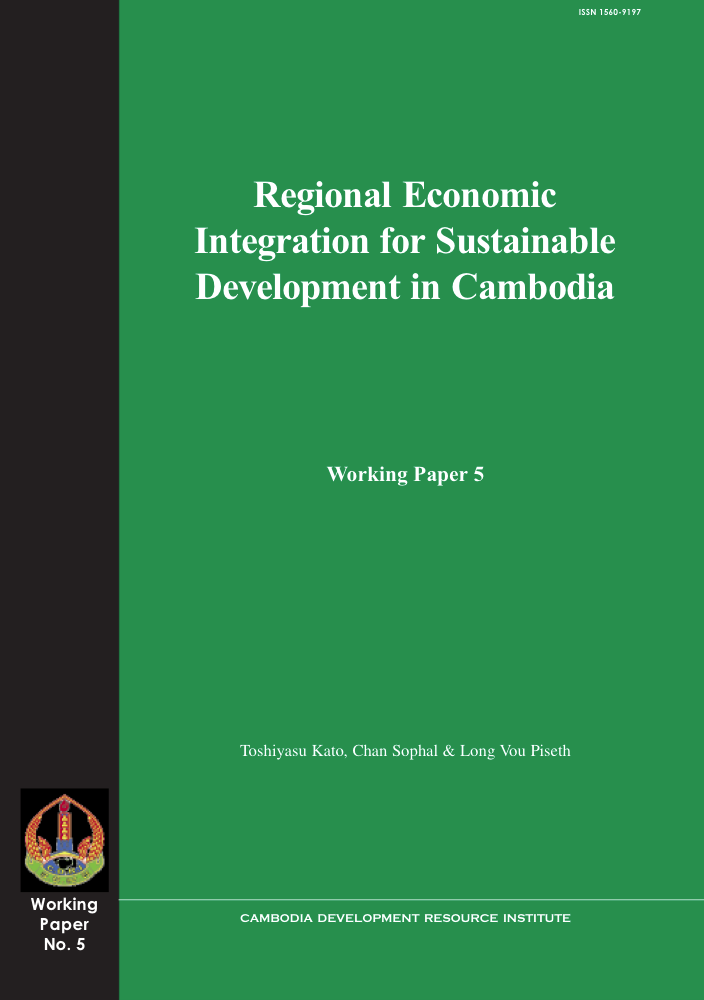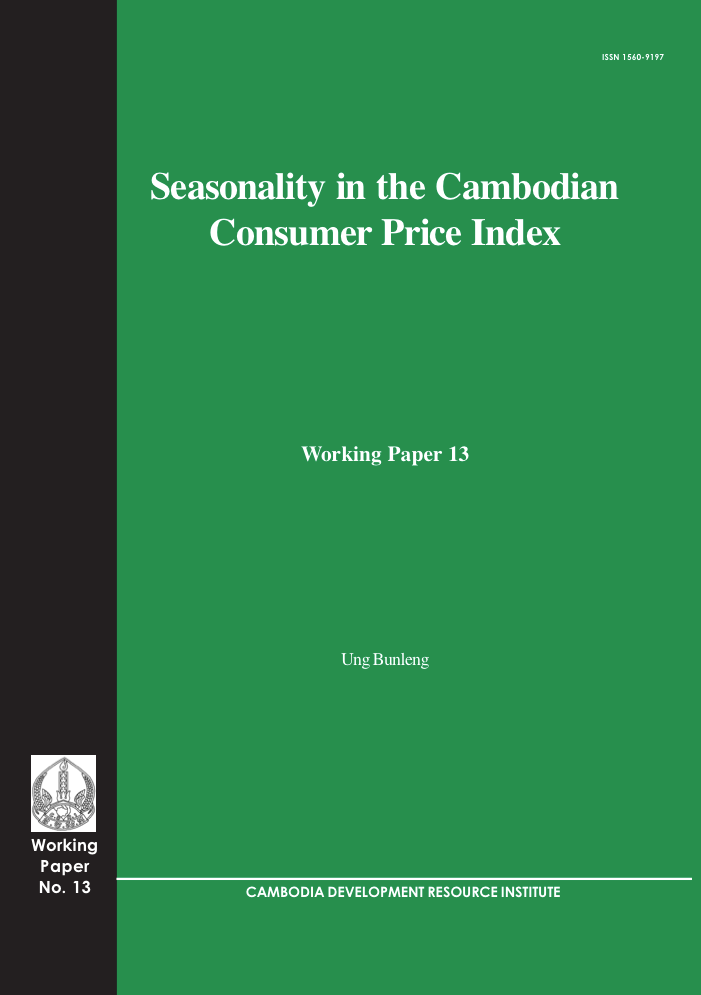
Seasonality in the Cambodian Consumer Price Index
Preliminary results from a seasonal adjustment of Cambodia’s official consumer price index (CPI) indicate significant seasonality in the series. Although the seasonal factors mirror the country’s main food production cycle, the original series has itself been volatile in recent years, and because of the procedures used in its compilation, it...
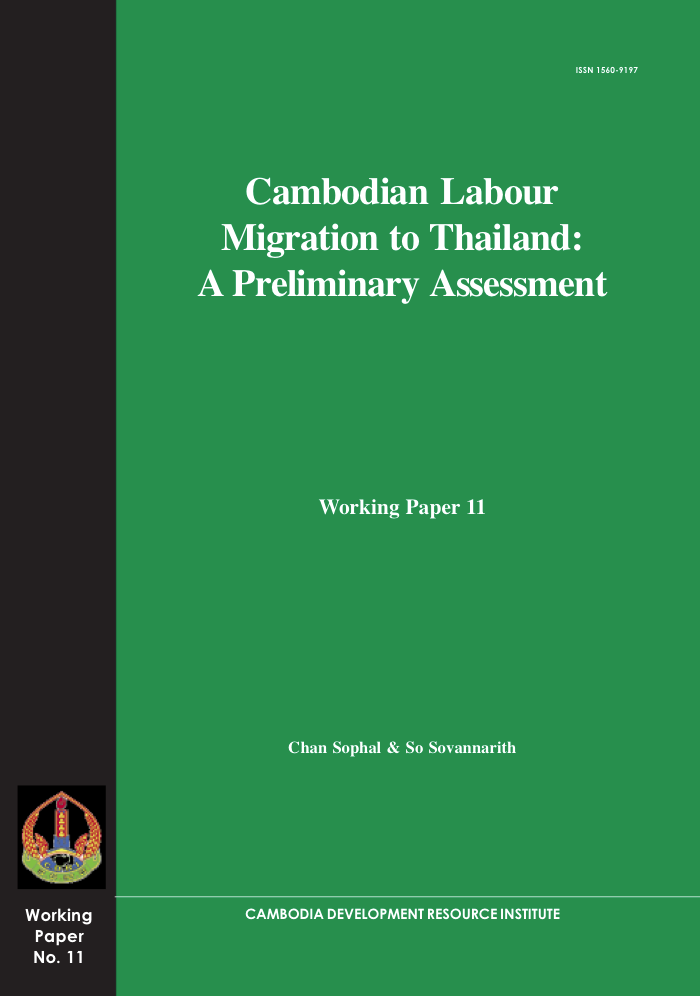
Cambodian Labour Migration to Thailand: A Preliminary Assessment
The Asian financial crisis induced a decline in overall economic growth and a surge in unemployment in Thailand, Cambodia, Laos and Vietnam. The downturn in the Thai economy has had an adverse impact on thousands of migrant workers, who had been able to take advantage of job opportunities during Thailand’s economic boom. An estimated 82,000 Cam...
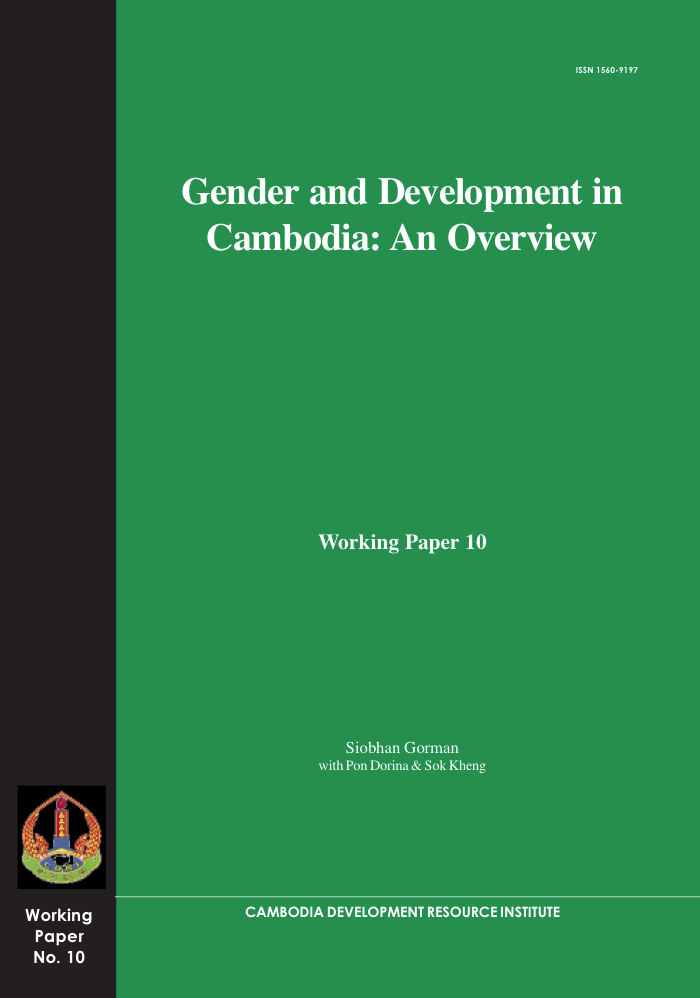
Gender and Development in Cambodia: An Overview
This paper highlights the gender gaps in contemporary Cambodian society, and discusses the constraints and underlying attitudes which determine women’s disadvantaged position. As new resources, opportunities and structures are introduced in the course of d...
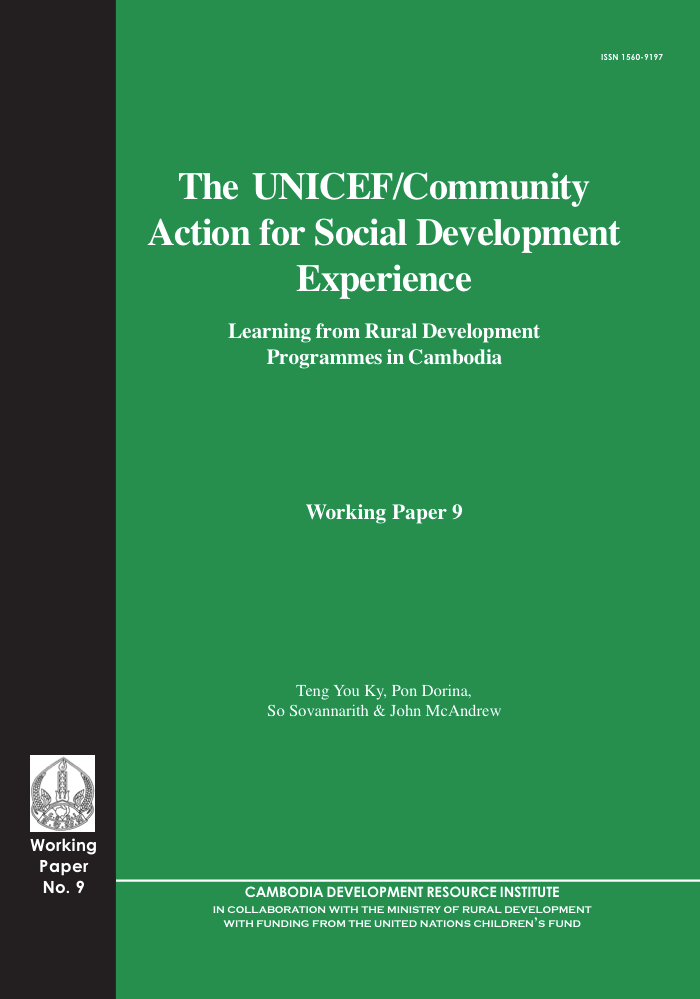
The UNICEF/Community Action for Social Development Experience: Learning from Rural Development Programmes
This working paper situates the findings of the UNICEF/CASD case study in the context of CDRI Working Paper No. 4, which is a comparative analysis of the joint Cambodia Development Resource Institute/Ministry of Rural Development research project entitled Learning from Rural Development Programmes in Cambodia. The analysis of that Working Paper,...
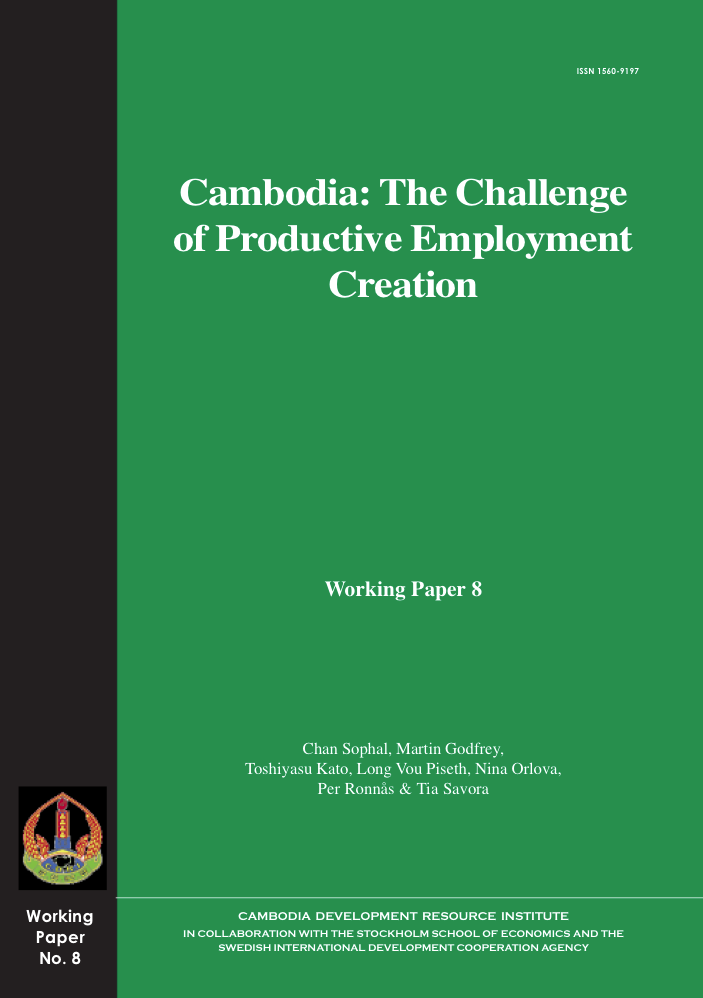
Cambodia: The Challenge of Productive Employment Creation
Economic growth in Cambodia came to an abrupt halt in 1997 as the domestic political crisis and the external financial crisis took their toll. However, Cambodia has been comparatively mildly affected by the Asian crisis and, provided that political stability can be achieved, there are good chances that the economic decline in 1997 will become li...

